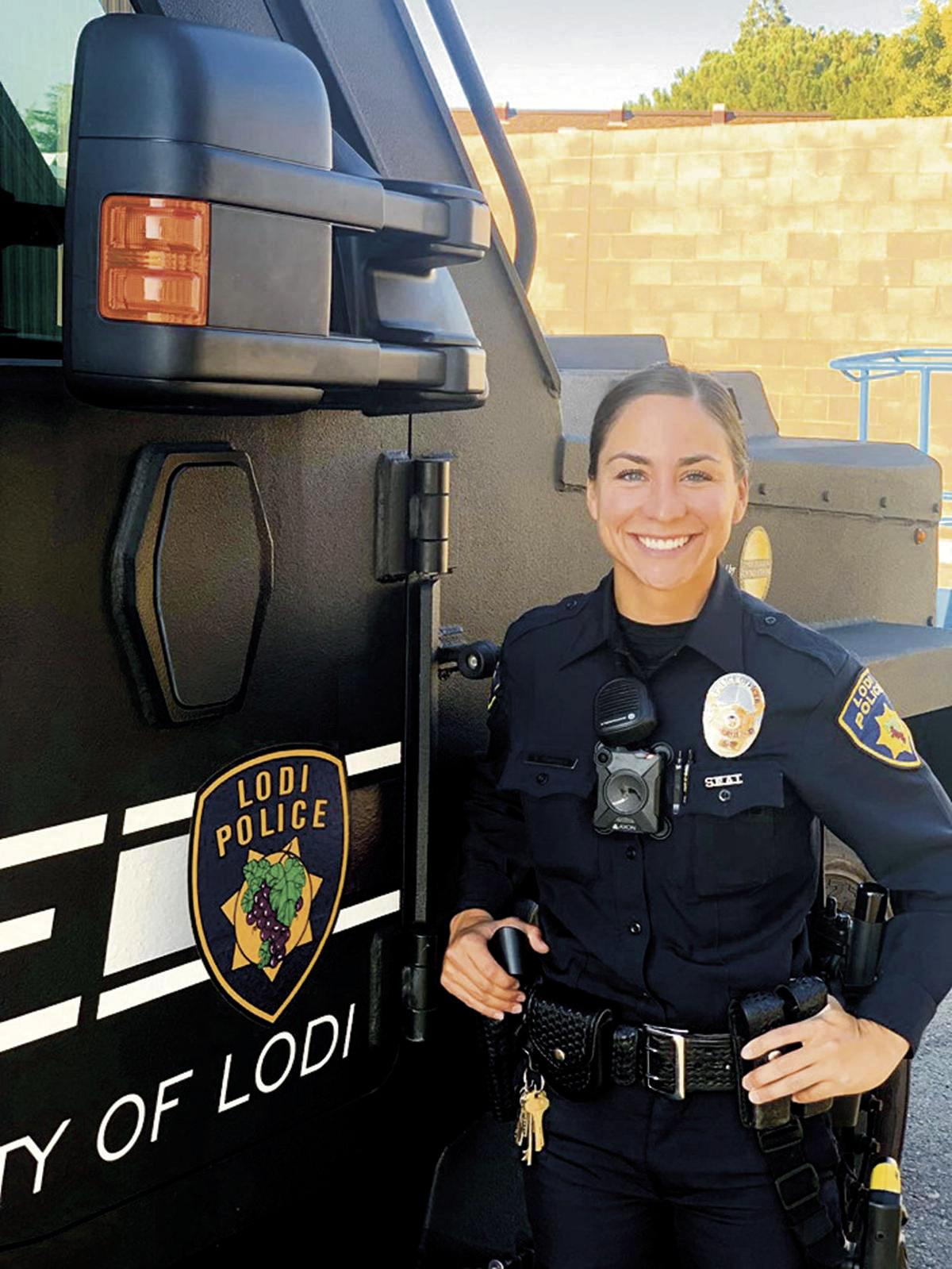Detective Regan Porteous
Lodi Police Department
Lodi, CA

Why did you become a police officer?
Like so many others, I got into police work with the intention of trying to be the change I wanted to see within our communities. I believe in representation and the ability for those who live within a community to see themselves reflected in those who serve it. As you slowly earn service stripes, the ability to see the change you have inspired sometimes becomes distant. As my career progresses, I remind myself that although the background noise may be loud, it takes focus and dedication to view each interaction as an opportunity to cultivate trust, inspiring a higher level of change.
What motivates you to succeed?
The next female. I have a passion for gender equality in policing, not equality that is masked by catchphrases or keywords, but true cultural changes within organizations. Our experiences, our values, and opportunities should be equal. I recognize the trailblazing work that has been done before me, however, I don’t think we are finished. I work hard to be successful because I want the success of females to be normalized, and to spark a cultural change within our departments. Success, for me, is the next generation of female officers being empowered to push boundaries and to set new standards.
What’s your most memorable moment on the job?
One of my most memorable moments was completing SWAT school. In that moment, I felt an overwhelming sense of relief. I was the 3rd female to successfully complete this SWAT school since its inception over 20 years ago. Now I was the first female on our department’s SWAT team. It seemed as though my presence alone would be a topic of conversation. As a result, I felt that my success was measured against a sliding standard. I knew that my accomplishment was just the beginning of breaking ground for a long line of females who serve as SWAT operators.
What challenges have you faced?
In law enforcement, challenges are constant. The biggest challenge I have faced is my own validity in my work. Being a woman, I have felt this need to prove myself, my abilities and my worth. I take on more work and go far beyond expectations in an effort to convey my value, while still wondering “Is that enough?”
What advice do you have for women considering a profession in policing?
The profession needs you, your community needs you and your department needs you. Historically, when people think about law enforcement, they correlate aptitude and ability with traditionally set standards. As women, we need to identify our strengths and own what it is that sets us apart, because that is exactly what policing needs.
“Fight for the things that you care about, but do it in a way that will lead others to join you.” –Ruth Bader Ginsburg
How we’re changing policing
The 30×30 Initiative is a coalition of police leaders, researchers, and professional organizations committed to advancing and supporting the representation, experiences, and well-being of women at all levels of law enforcement, both in the U.S. and beyond.
Research shows that women play a crucial role in building community trust, de-escalating conflict, and improving public safety outcomes, with evidence linked to reduced use of force and enhanced relationships with the communities they serve. However, women represent less than 14% of sworn officers and 20% of recruits in state and local law enforcement agencies. Additionally, about 40% of the approximately 18,000 law enforcement agencies in the U.S. have no full-time women officers (Source: Bureau of Justice Statistics).
We are collaborating with hundreds of agencies to make law enforcement a profession where qualified women who are drawn to it feel welcomed and supported while ensuring agencies address their unique needs and foster their success.